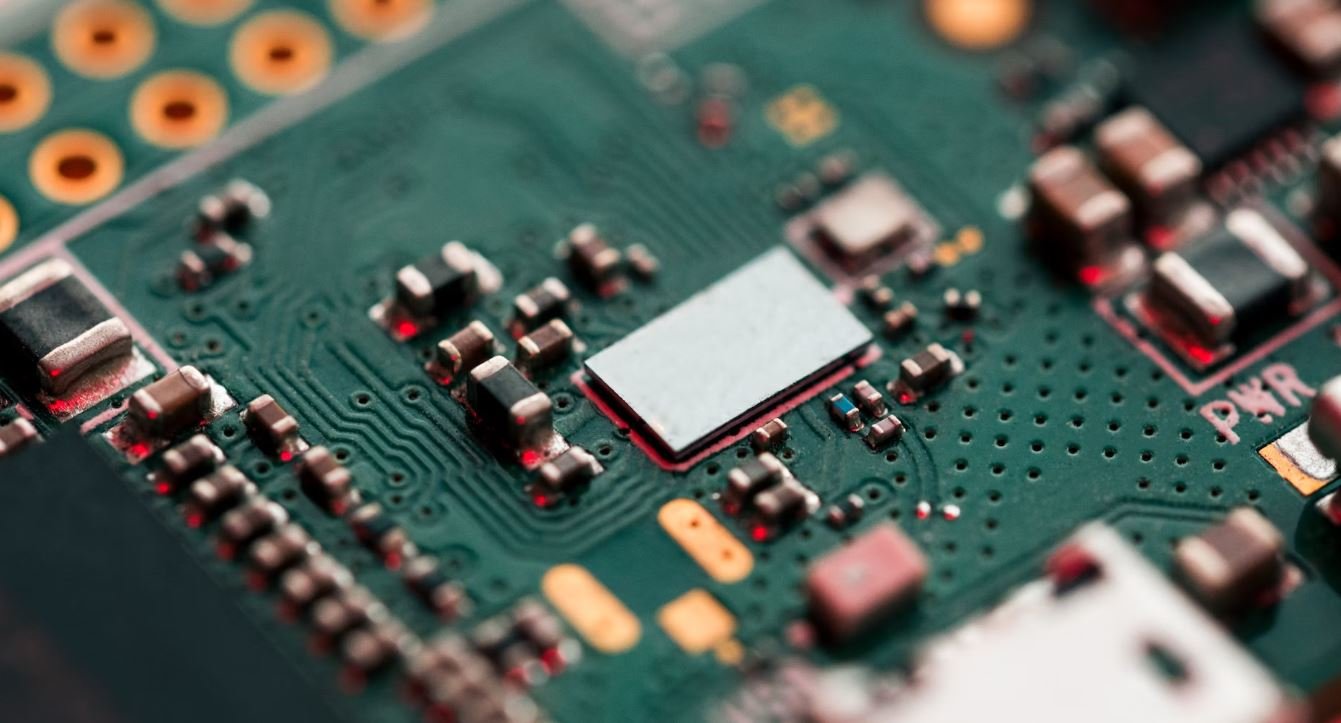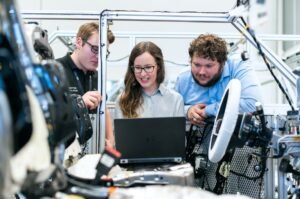Elon Musk: Hydrogen Car
Elon Musk, the visionary entrepreneur behind Tesla and SpaceX, has long been an advocate for electric vehicles and renewable energy. However, when it comes to hydrogen cars, Musk has been less enthusiastic. In fact, he has referred to them as “fool cells.” Let’s take a closer look at Musk’s stance on hydrogen cars and the reasons behind it.
Key Takeaways
- Elon Musk has been critical of hydrogen cars.
- Hydrogen fuel cell technology has several disadvantages when compared to electric vehicles.
- Musk believes that the infrastructure required for hydrogen cars is too expensive and impractical.
- Tesla’s success in the electric vehicle market has made Musk more confident in its potential for widespread adoption.
While hydrogen fuel cell technology has its merits, Elon Musk has expressed several concerns that have shaped his negative opinion towards it. According to Musk, “fuel cells are so bullshit.” One major drawback is the cost and complexity of building a hydrogen infrastructure. Unlike electric vehicles, which can be charged at home or at public charging stations, hydrogen cars require specially built refueling stations that are expensive to install and maintain.
Furthermore, the production and transportation of hydrogen comes with its own set of challenges. Hydrogen is typically derived from natural gas, which is a fossil fuel. This process can result in greenhouse gas emissions, undermining the environmental benefits of hydrogen fuel cells. In contrast, electric vehicles can be powered by renewable energy sources such as solar and wind.
Another disadvantage of hydrogen cars is their energy efficiency. While electric vehicles are able to convert approximately 90% of the energy from their batteries into propulsion, hydrogen cars are only around 25-30% efficient. This means that for the same amount of energy, an electric vehicle can travel much farther than a hydrogen car.
Hydrogen Car vs. Electric Vehicle Comparison
| Hydrogen Car | Electric Vehicle | |
|---|---|---|
| Infrastructure | Requires specialized refueling stations | Can be charged at home or public charging stations |
| Emissions | Hydrogen production from fossil fuels | Can be powered by renewable energy |
| Energy Efficiency | 25-30% | 90% |
Despite these criticisms, some automakers continue to invest in hydrogen fuel cell technology, believing it has the potential to play a role in the future of transportation. However, Musk remains firm in his belief that electric vehicles are the superior choice. As Musk once famously stated, “I’d rather dance on broken glass than sell hydrogen cars.”
Electric Vehicle Market Growth
- In 2019, the global electric vehicle market size was valued at approximately $162.34 billion.
- The market is projected to reach $802.81 billion by 2027, growing at a CAGR of 22.6% from 2020 to 2027.
- Rising environmental concerns and government initiatives promoting clean energy are driving the growth of the electric vehicle industry.
The rapid growth of the electric vehicle market is a testament to Musk’s confidence in its potential. Tesla, the company he co-founded, has become a major player in the industry, producing some of the most popular and technologically advanced electric vehicles on the market. With their increasing popularity and advancements in battery technology, electric vehicles are becoming an increasingly viable alternative to traditional gasoline-powered cars.
Tesla Model 3 Sales Statistics
| Year | Tesla Model 3 Sales |
|---|---|
| 2017 | Delivery of the first Model 3 |
| 2018 | 145,846 units sold worldwide |
| 2019 | 300,757 units sold worldwide |
As seen from the sales figures of the Tesla Model 3, the demand for electric vehicles is on the rise. With the ongoing efforts to improve battery technology, expand charging infrastructure, and reduce production costs, electric vehicles are expected to continue their upward trajectory in the global automotive market.
While hydrogen cars may have some potential, Elon Musk remains convinced that electric vehicles are the future of transportation. The success of Tesla and the overall growth of the electric vehicle market indicate that Musk’s vision may indeed be on the right track. As the world continues to prioritize sustainability and renewable energy, electric vehicles are poised to play a major role in shaping the future of transportation.

Common Misconceptions
Misconception 1: Hydrogen cars are more efficient than electric cars
Contrary to popular belief, hydrogen cars are not more efficient than electric cars. Many people believe that hydrogen fuel cells are more efficient in converting energy into power compared to batteries. However, numerous studies have shown that electric vehicles have higher energy efficiency and lower well-to-wheel emissions compared to hydrogen fuel cell vehicles.
- Electric vehicles have higher energy efficiency.
- Electric cars produce lower well-to-wheel emissions.
- Studies show electric cars are more resource-efficient.
Misconception 2: Hydrogen cars are more convenient than electric cars
There is a misconception that hydrogen cars are more convenient than electric cars because they can be refueled quickly, similar to traditional combustion engine vehicles. However, the reality is that the infrastructure to produce, distribute, and refuel hydrogen is still in its early stages and not widely available. In contrast, electric vehicles can be conveniently charged at home or using existing charging infrastructure that is becoming increasingly accessible.
- Hydrogen infrastructure is underdeveloped and not widely available.
- Electric vehicles can be conveniently charged at home.
- Existing charging infrastructure for electric cars is expanding.
Misconception 3: Hydrogen cars are more eco-friendly than electric cars
Another common misconception is that hydrogen cars are more eco-friendly than electric cars. This belief stems from the idea that hydrogen is a clean fuel, emitting only water vapor. While it is true that running a hydrogen fuel cell vehicle produces water vapor as the only byproduct, the production of hydrogen itself often relies on fossil fuels through a process called steam methane reforming. In comparison, electric vehicles can be powered by renewable energy sources, such as solar or wind, leading to zero tailpipe emissions.
- Hydrogen production often relies on fossil fuels.
- Electric cars can be powered by renewable energy sources.
- Electric vehicles have zero tailpipe emissions.
Misconception 4: Hydrogen cars have a longer driving range than electric cars
Many people believe that hydrogen cars have a longer driving range than electric cars, making them more suitable for long-distance travel. Although hydrogen fuel cell vehicles can have a longer range compared to battery electric vehicles, the lack of hydrogen refueling infrastructure limits their practicality for long trips. On the other hand, the electric vehicle charging infrastructure is continuously expanding, making long-distance travel more feasible.
- Lack of hydrogen refueling infrastructure limits long-distance travel.
- Electric vehicle charging infrastructure is continuously expanding.
- Electric cars are becoming more suitable for long trips.
Misconception 5: Hydrogen cars are the future of transportation
There is a misconception that hydrogen cars are the future of transportation and will ultimately replace electric vehicles. While hydrogen fuel cell technology has its advantages and potential applications, it faces significant challenges related to infrastructure, efficiency, and cost. Electric vehicles, on the other hand, have already gained substantial market share and continue to improve in terms of technology, affordability, and sustainability.
- Hydrogen fuel cell technology faces infrastructure challenges.
- Electric vehicles have gained substantial market share.
- Electric cars continue to improve in technology and affordability.

Table 1: Tesla Electric Car Models
Tesla, the electric car manufacturer founded by Elon Musk, offers a range of electric vehicle models that have gained widespread popularity.
| Model | Range (miles) | 0-60 mph time (seconds) |
|---|---|---|
| Model S | 390+ | as low as 1.99 |
| Model 3 | 215+ | as low as 3.1 |
| Model X | 351+ | as low as 2.5 |
| Model Y | 326+ | as low as 3.5 |
These remarkable Tesla electric car models showcase the impressive range and acceleration performance, reinforcing the technological advancements made by the company under the leadership of Elon Musk.
Table 2: Cost Comparison – Hydrogen vs. Electric Vehicles
Comparing the cost of hydrogen vehicles and electric vehicles provides insights into the affordability and potential market competitiveness of each alternative fuel option.
| Factor | Hydrogen Vehicles | Electric Vehicles |
|---|---|---|
| Purchase Price | Higher | Lower |
| Fuel Cost | Lower | Higher |
| Infrastructure | Underdeveloped | Advanced |
| Vehicle Range | Higher | Variable |
The cost comparison between hydrogen vehicles and electric vehicles is vital, as it reveals the current advantages of electric vehicles in terms of purchase price, infrastructure availability, and overall operational costs.
Table 3: Global Electric Vehicle Sales
An overview of global electric vehicle sales highlights the increasing demand for sustainable transportation options, bolstering the case for electric vehicles.
| Year | Global EV Sales |
|---|---|
| 2015 | 540,000 |
| 2016 | 774,000 |
| 2017 | 1,223,000 |
| 2018 | 1,985,000 |
| 2019 | 2,202,000 |
The significant increase in global electric vehicle sales over the years underscores the growing interest and acceptance of electric vehicles as a viable and sustainable mode of transportation worldwide.
Table 4: Charging Infrastructure Statistics
An analysis of charging infrastructure statistics sheds light on the availability and accessibility of charging stations, a crucial factor in the widespread adoption of electric vehicles.
| Region | Number of Charging Stations |
|---|---|
| North America | 41,400 |
| Europe | 213,367 |
| China | 770,000 |
| Japan | 40,849 |
These charging infrastructure statistics demonstrate the progress made in establishing a network of charging stations, fostering the convenience and viability of electric vehicles in various regions worldwide.
Table 5: Hydrogen Infrastructure Statistics
Examining hydrogen infrastructure statistics provides valuable insights into the current state and potential growth of the hydrogen fueling infrastructure.
| Region | Number of Hydrogen Stations |
|---|---|
| North America | 46 |
| Europe | 160 |
| Asia | 348 |
| Oceania | 25 |
These hydrogen infrastructure statistics underline the progress made in developing hydrogen fueling stations across multiple regions, laying the groundwork for the potential expansion of hydrogen vehicles in the future.
Table 6: Tesla Supercharger Network Growth
Monitoring the expansion of Tesla’s Supercharger network provides valuable insights into Tesla’s commitment to developing an extensive charging infrastructure for their electric vehicle owners.
| Year | Number of Superchargers |
|---|---|
| 2015 | 3,608 |
| 2016 | 5,437 |
| 2017 | 9,723 |
| 2018 | 14,081 |
| 2019 | 17,467 |
The continuous growth of Tesla’s Supercharger network demonstrates the company’s commitment to providing convenient and fast charging options for their electric vehicle owners, further supporting the widespread adoption of electric vehicles.
Table 7: Hydrogen Vehicle Availability
Tracking the availability of hydrogen vehicles in the market provides insights into the current range of options for consumers interested in this alternative fuel technology.
| Manufacturer | Hydrogen Vehicle Models |
|---|---|
| Toyota | Mirai |
| Hyundai | NEXO |
| Honda | Clarity Fuel Cell |
| Mercedes-Benz | GLC F-CELL |
The availability of hydrogen vehicles from manufacturers like Toyota, Hyundai, Honda, and Mercedes-Benz provides consumers with choices when considering environmentally friendly transportation alternatives.
Table 8: Tesla Autonomous Driving Capability
Understanding Tesla’s autonomous driving capability highlights the company’s commitment to revolutionizing transportation and enhancing road safety.
| Autopilot Version | Introduction | Level of Autonomy |
|---|---|---|
| Autopilot 1.0 | 2014 | Level 2 |
| Autopilot 2.0 | 2016 | Level 2+ |
| Autopilot 3.0 | 2019 | Level 2++ |
| Autopilot 4.0 | In development | Level 3+ |
Tesla’s autonomous driving capability continues to evolve, showcasing their dedication to advancing the technology and bringing about a future with increased road safety and convenience.
Table 9: Hydrogen Refueling Times
Comparing hydrogen refueling times with electric vehicle charging times offers insights into the potential advantages and drawbacks of each technology.
| Technology | Average Refueling/Charging Time |
|---|---|
| Hydrogen | 3-5 minutes |
| Electric | 30 minutes to several hours |
The significantly shorter refueling times for hydrogen vehicles highlight an advantage in terms of convenience, but it’s important to consider the expanding network of fast-charging stations for electric vehicles, reducing charging time variations depending on the available infrastructure.
Table 10: Environmental Impact
Evaluating the environmental impact of hydrogen and electric vehicles offers insights into the overall sustainability benefits of each technology.
| Factor | Hydrogen Vehicles | Electric Vehicles |
|---|---|---|
| Greenhouse Gas Emissions | Water Vapor | Varies (dependent on electricity source) |
| Air Pollution | Negligible | No Tailpipe Emissions |
| Renewable Energy Utilization | Potential | Varies (dependent on electricity source) |
The environmental impact comparison between hydrogen vehicles and electric vehicles highlights the potential advantages of hydrogen vehicles in terms of water vapor emissions and the renewable energy utilization potential, although a thorough assessment of electricity sources is necessary for electric vehicles to maximize their sustainability benefits.
Throughout the analysis of various aspects related to hydrogen cars and electric vehicles, it becomes clear that electric vehicles have gained significant traction in the market, outpacing hydrogen vehicles in terms of infrastructure availability, cost-effectiveness, and overall market acceptance. Tesla, under the visionary guidance of Elon Musk, has played a pivotal role in revolutionizing the electric vehicle market and stimulating the global transition towards sustainable transportation. With continual advancements in technology, charging infrastructure, and autonomous driving capabilities, electric vehicles are poised to continue their dominance in the automotive industry, offering a cleaner and more feasible alternative to traditional petroleum-fueled vehicles.
Frequently Asked Questions
What is Elon Musk’s opinion on hydrogen cars?
Elon Musk is not a proponent of hydrogen fuel cell technology for cars. He has expressed his belief that hydrogen cars are not efficient or practical compared to electric vehicles.
Why does Elon Musk prefer electric cars over hydrogen cars?
According to Musk, electric cars have several advantages over hydrogen cars. They are more efficient, have lower manufacturing costs, and benefit from a more established infrastructure for charging.
What are the main drawbacks of hydrogen fuel cell cars?
Hydrogen fuel cell cars have several drawbacks, including limited availability of hydrogen refueling stations, high production costs, and safety concerns associated with storing and handling hydrogen gas.
Are hydrogen cars completely emission-free?
Hydrogen cars produce zero emissions at the tailpipe, as the only byproduct of their fuel cell system is water vapor. However, the process of producing hydrogen often involves the release of greenhouse gases, negating some of the environmental benefits.
How efficient are hydrogen fuel cell cars compared to electric cars?
Electric cars are generally more efficient than hydrogen fuel cell cars. The process of converting hydrogen into electricity for the fuel cell system is less efficient compared to charging an electric vehicle’s battery directly.
What is the current state of hydrogen fuel cell technology?
Hydrogen fuel cell technology is still in the early stages of development and adoption. While hydrogen fuel cells have been used in some niche applications, such as powering buses and forklifts, widespread adoption in the automotive industry remains limited.
How does hydrogen compare to other alternative fuels?
Hydrogen is one of several alternative fuels being explored to replace fossil fuels. However, it faces competition from electric vehicles, biofuels, and other renewable energy sources in the race for sustainable transportation solutions.
Are there any advantages of hydrogen fuel cell cars over electric cars?
While hydrogen fuel cell cars have their drawbacks, they do offer a few advantages over electric cars. Hydrogen cars can be refueled quickly, similar to gasoline-powered vehicles, and have a longer range, making them suitable for certain applications like long-haul transportation.
What are some potential future developments in hydrogen car technology?
Researchers and engineers are working on improving hydrogen car technology, aiming to overcome the current limitations. This includes advancements in hydrogen production methods, fuel cell efficiency, and expanding the hydrogen refueling infrastructure.
What is Elon Musk’s vision for the future of transportation?
Elon Musk envisions a future of sustainable transportation dominated by electric vehicles powered by renewable energy sources. He believes that electric cars, paired with advancements in autonomous driving, will play a crucial role in reducing carbon emissions and transforming the transportation industry.




